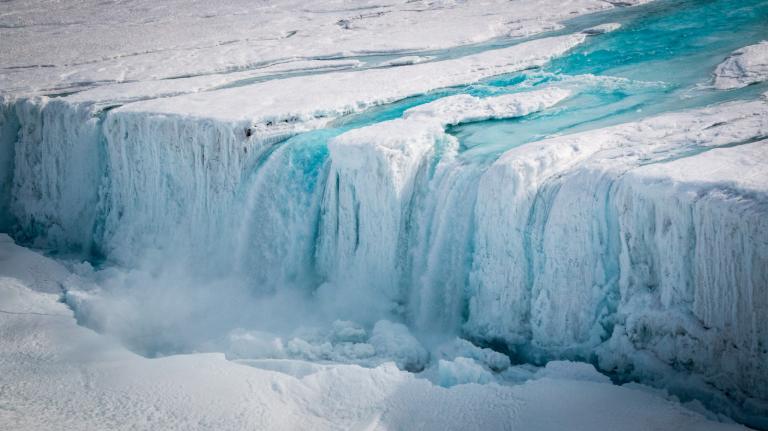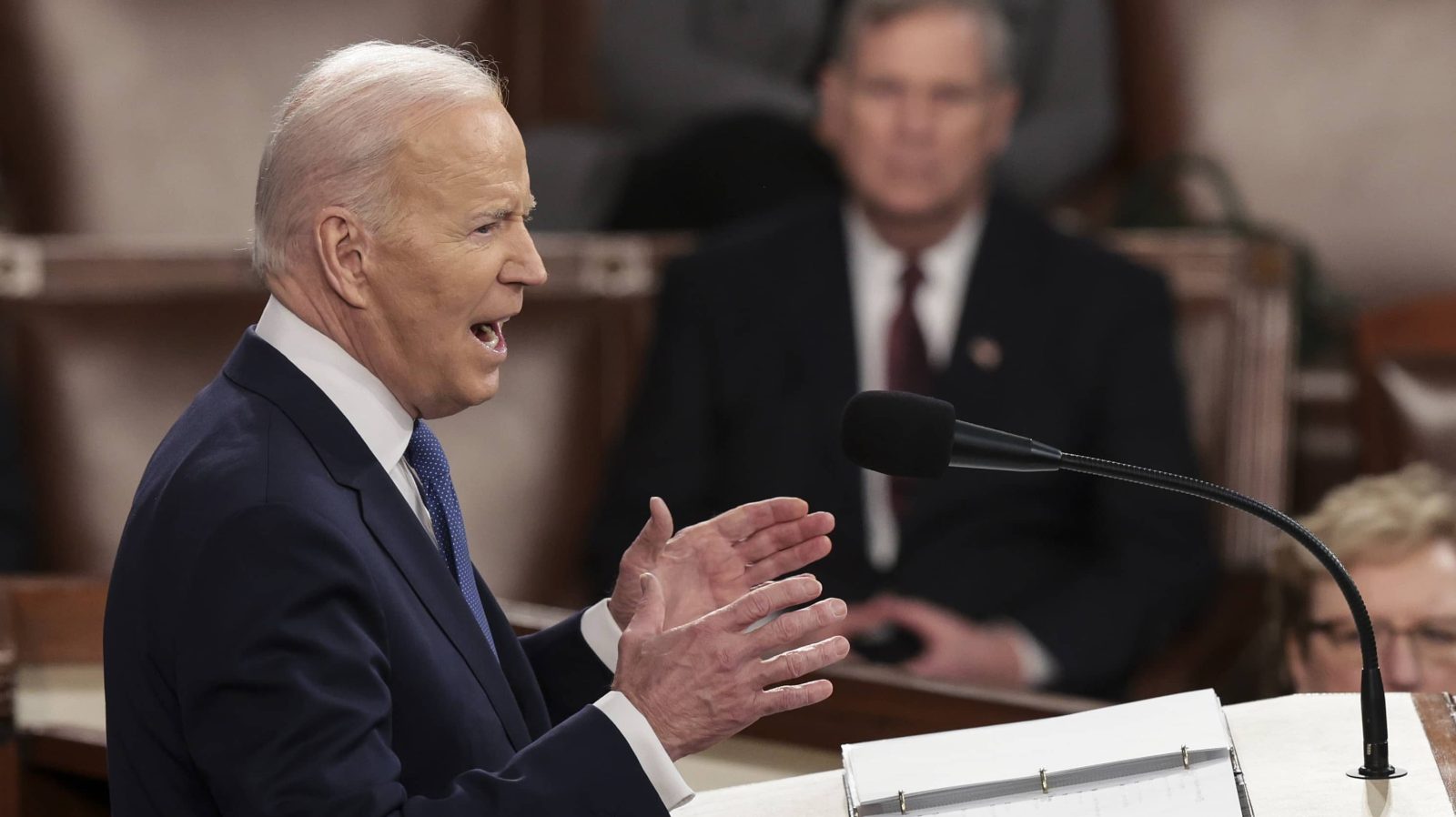On Monday, the Intergovernmental Panel on Climate Change issued a report that warned of “widespread, pervasive impacts” to ecosystems, people, settlements, and infrastructure if the world does not take swift action to adapt to climate change. Already, storms, floods, and other extreme weather events are displacing millions of people around the world. Heat and drought are killing crops and will put wide swaths of global populations at risk of famine. Insects and the deadly diseases they carry are migrating into new areas and jeopardizing public health. In short, things are getting worse much more quickly than even climate experts expected.
President Joe Biden didn’t talk about any of that during his first State of the Union address on Tuesday night. Instead, he talked at length about his administration’s response to Russia’s unprovoked invasion of Ukraine, his plan to bolster American manufacturing, and the actions he’s taken to keep the COVID-19 pandemic in check. He paid special attention to the American consumer, promising to “lower your costs” and touting and a collaborative effort between the U.S. and 30 other countries to release “60 billion barrels of oil from reserves around the world” to limit the effect of sanctions against Russia on domestic oil prices — a line that was met with rapturous applause from members of Congress.
“I want you to know that we are going to be OK,” Biden said. The IPCC report indicates the U.S. and other nations are going to be anything but OK if swift actions aren’t taken to avert further planetary warming. “Any further delay,” the IPCC report says, “will miss a brief and rapidly closing window of opportunity to secure a liveable and sustainable future for all.”
Biden made only occasional allusions to the climate crisis during the speech. “We’ll create good jobs for millions of Americans, modernizing roads, airports, ports and waterways all across America,” he said, touting the bipartisan infrastructure plan Congress passed in November, “and we’ll do it to withstand the devastating effects of the climate crisis and promote environmental justice.” He advocated for cutting energy costs for American families to the tune of $500 a year on average by providing tax credits for weatherizing homes and doubling America’s clean energy production. He said he wanted to lower the cost of electric cars and build a national network of 500,000 electric vehicle charging stations. Biden’s only bill aimed at tackling the root causes of climate change in the U.S. — the Build Back Better Act, which contains $500 billion for clean energy tax credits — is currently stalled in the Senate. Biden didn’t mention the bill by name, though he did talk up some popular provisions that appeared in previous versions of the legislation.
Undeniably, Russia’s invasion of Ukraine is the biggest news story in the world right now, and it makes sense that Biden spent lots of time on it. This certainly isn’t the first time climate change has taken a back seat to other political priorities in a time of crisis.
In his book A Promised Land, former President Barack Obama credits the Deepwater Horizon oil spill, which unleashed 134 million gallons of oil into the Gulf of Mexico in 2010, with derailing his administration’s efforts to drum up bipartisan support for a pivotal cap-and-trade bill that would have set a limit on the country’s greenhouse gas emissions. In 2020, the world’s biggest economies used money earmarked for pandemic recovery to bail out fossil fuels, opting to pour resources into polluting industries instead of investing in renewable energy. As major oil companies divest from Russian oil now, some U.S. lawmakers, including Democratic Senator Joe Manchin of West Virginia, the senator responsible for stalling most of Biden’s climate agenda thus far, have called for bolstering American oil and gas production.
But it was striking to watch Biden, who made climate action a centerpiece of his presidential campaign and his domestic agenda during his first year in office, skate over the IPCC’s stark warning about climate change — especially when the world’s oil addiction is also a contributing factor to Russia’s attitude of impunity in Ukraine.
“Fossil fuels have driven conflict, human rights abuses and ecological catastrophes around the world for decades,” said Kierán Suckling, executive director of the Center for Biological Diversity, in a statement after the address. “It’s time for President Biden to stop equivocating and fully embrace every tool at his disposal to end the fossil fuel era.”
Editor’s note: The Center for Biological Diversity is an advertiser with Grist. Advertisers have no role in Grist’s editorial decisions.




